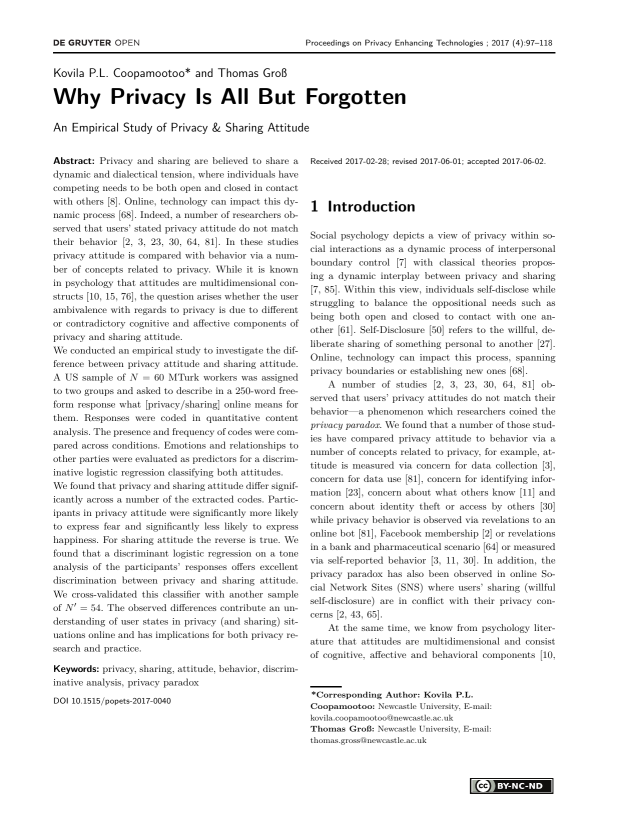Why Privacy Is All But Forgotten
Authors: Kovila P.L. Coopamootoo (Newcastle University), Thomas Groß (Newcastle University)
Volume: 2017
Issue: 4
Pages: 97–118
DOI: https://doi.org/10.1515/popets-2017-0040
Abstract: Privacy and sharing are believed to share a dynamic and dialectical tension, where individuals have competing needs to be both open and closed in contact with others [8]. Online, technology can impact this dynamic process [68]. Indeed, a number of researchers observed that users’ stated privacy attitude do not match their behavior [2, 3, 23, 30, 64, 81]. In these studies privacy attitude is compared with behavior via a number of concepts related to privacy. While it is known in psychology that attitudes are multidimensional constructs [10, 15, 76], the question arises whether the user ambivalence with regards to privacy is due to different or contradictory cognitive and affective components of privacy and sharing attitude. We conducted an empirical study to investigate the difference between privacy attitude and sharing attitude. A US sample of N = 60 MTurk workers was assigned to two groups and asked to describe in a 250-word freeform response what [privacy/sharing] online means for them. Responses were coded in quantitative content analysis. The presence and frequency of codes were compared across conditions. Emotions and relationships to other parties were evaluated as predictors for a discriminative logistic regression classifying both attitudes. We found that privacy and sharing attitude differ significantly across a number of the extracted codes. Participants in privacy attitude were significantly more likely to express fear and significantly less likely to express happiness. For sharing attitude the reverse is true. We found that a discriminant logistic regression on a tone analysis of the participants’ responses offers excellent discrimination between privacy and sharing attitude. We cross-validated this classifier with another sample of N 0 = 54. The observed differences contribute an understanding of user states in privacy (and sharing) situations online and has implications for both privacy research and practice.
Keywords: privacy, sharing, attitude, behavior, discriminative analysis, privacy paradox
Copyright in PoPETs articles are held by their authors. This article is published under a Creative Commons Attribution-NonCommercial-NoDerivs 3.0 license.

